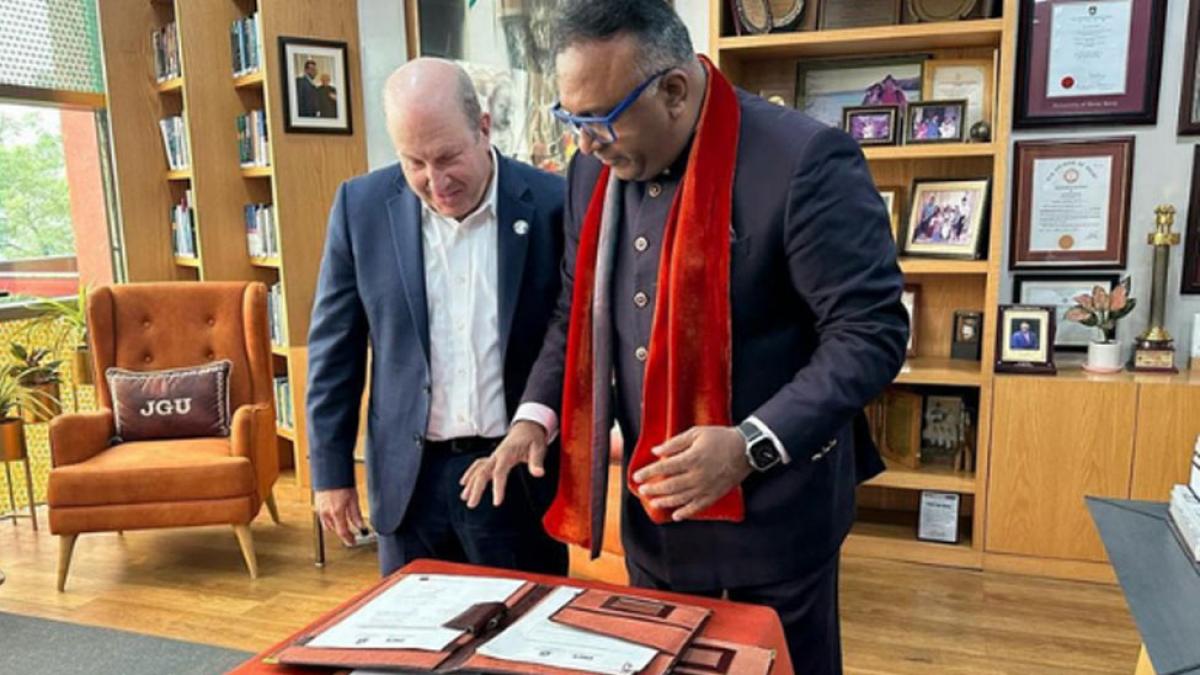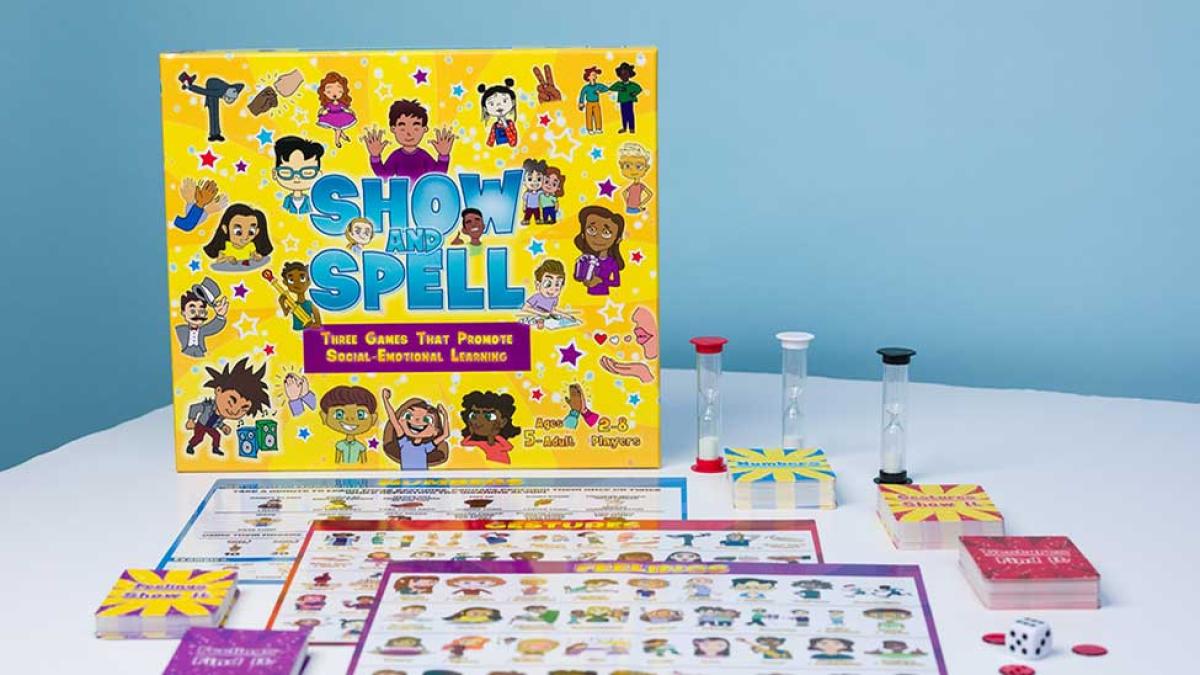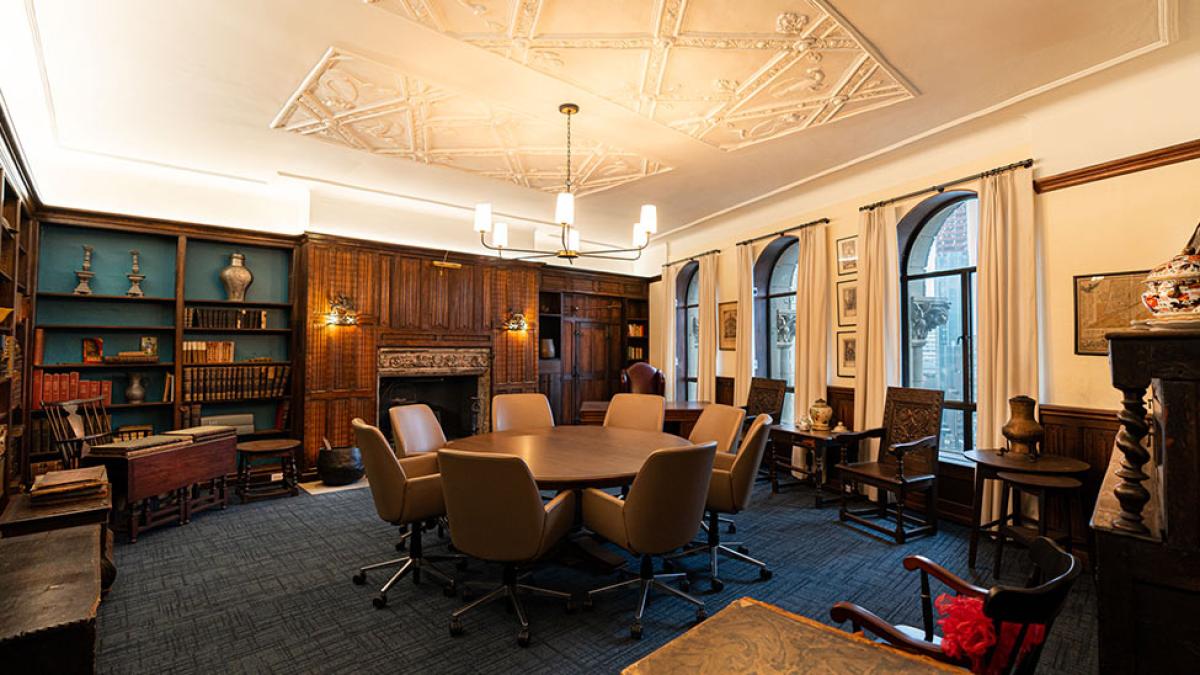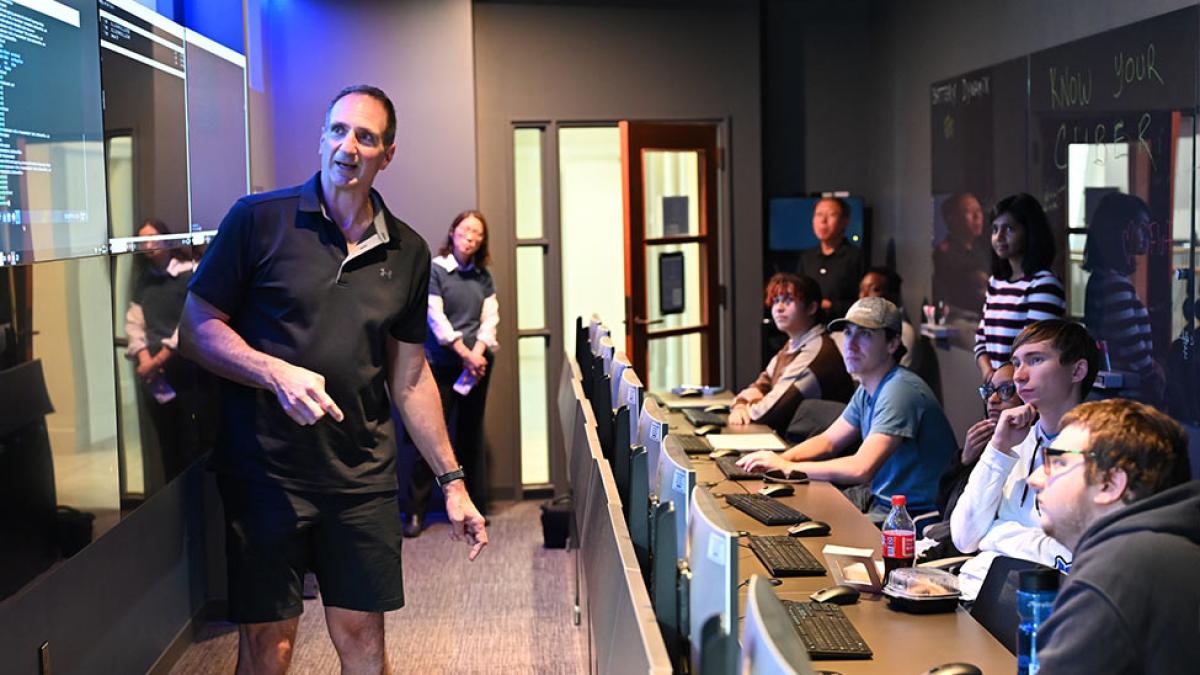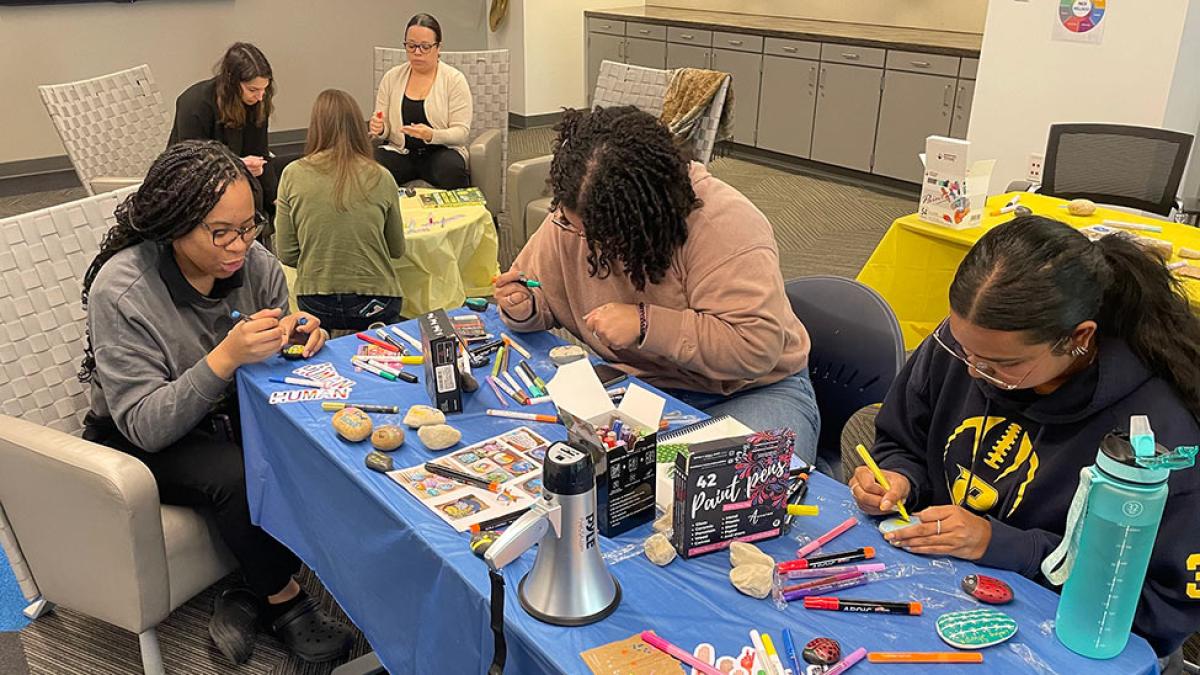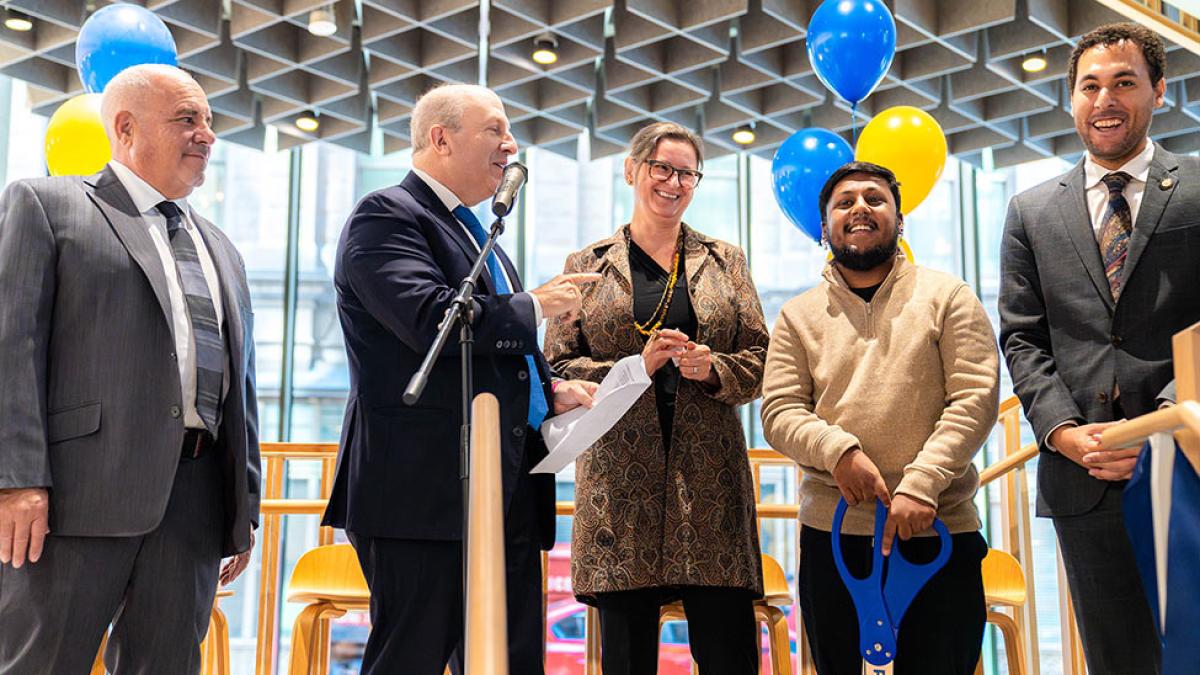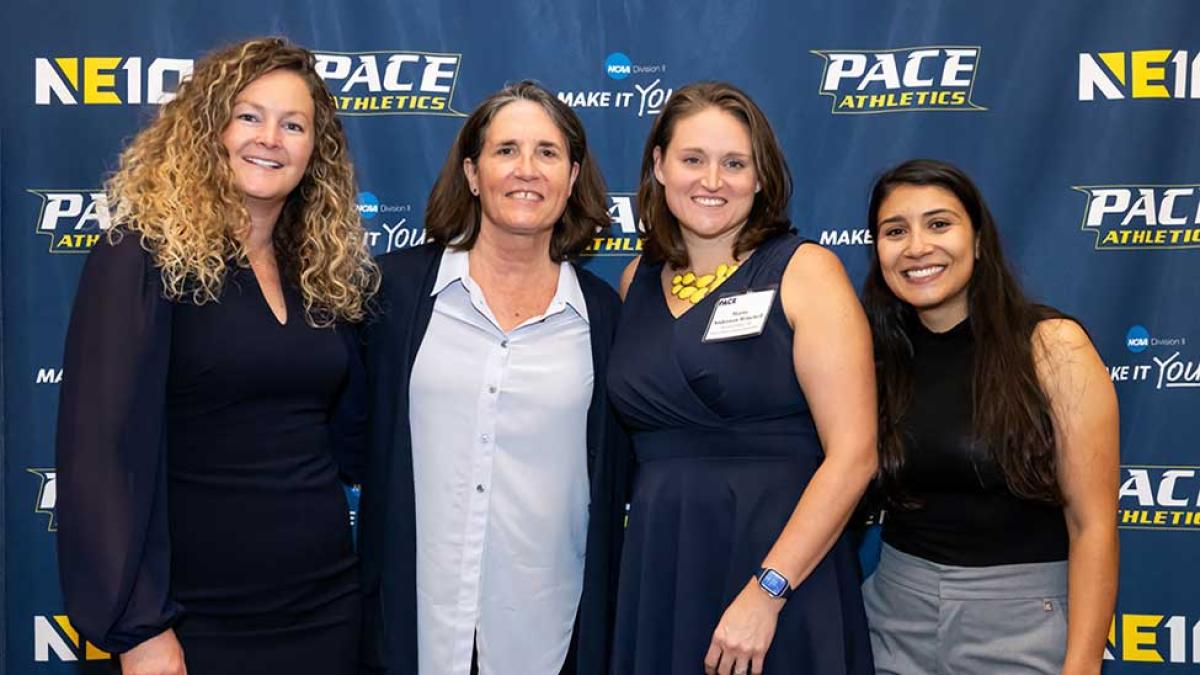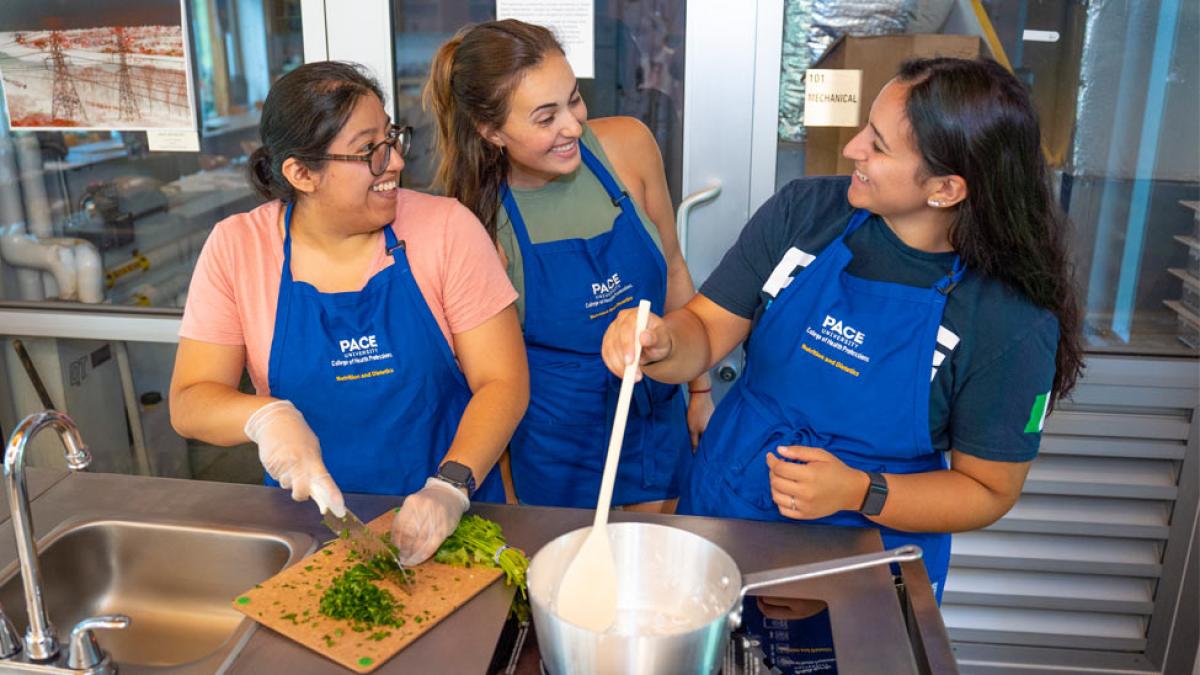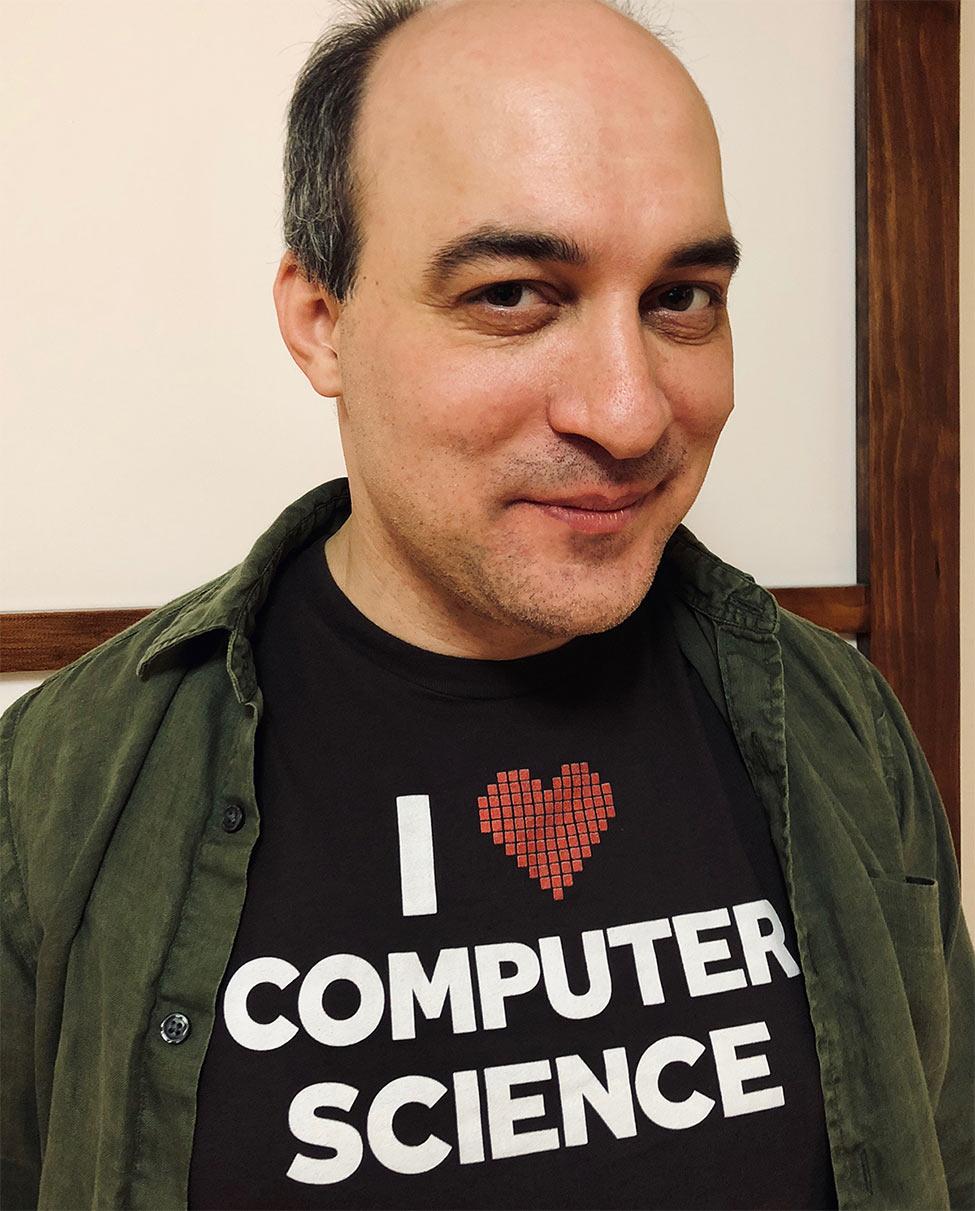
DEI Opponents Are Using A Civil Rights Act Section To Go After A VC Fund That Invests In Businesses Owned By Women Of Color: ‘It’s A Very Clever Game Plan’
Professor Randolph McLaughlin provides expert insight to Fortune about opponents of workplace diversity programs increasingly banking on a section of the Civil Rights Act of 1866 to challenge equity policies as well as funding to minority-owned businesses.
"Huge Monetary Award": Legal Experts Warn Jury May Hit Trump Hard To "Shut Him Up" Amid New Attacks
Professor Bennett Gershman speaks with Salon about Donald Trump facing trial again in New York to determine additional damages for defaming former Elle magazine columnist E. Jean Carroll in 2019 when he denied her sexual assault allegations.
The Road To Salt Reduction
Adirondack Explorer writes about how residents brought nine lawsuits under the approved a constitutional amendment establishing a state right to a “clean and healthful environment,” according to a tally of the cases compiled by the Elisabeth Haub School of Law at Pace University.
Achievement Unlocked—Pace’s New Game Development Major
Pace's new BS in Game Development is a game-changer, literally. Created by Seidenberg’s resident ‘game guy’ Carmine Guida, the program combines technological foundations with hands-on practice to prepare students to thrive in one of the fastest-growing industries worldwide.


Carmine Guida, PhD, is known as the “game guy” in Seidenberg.
Many computer science students at Pace meet Guida early in their education. Guida has been working in Seidenberg’s School of Computer Science and Information for five years, teaching many of the beginner computer science classes that provide foundational skills for the field. When he’s not teaching fundamentals, though, he’s teaching games.

A developer himself, with several titles on Steam and across mobile app platforms, Guida began teaching game development at Parsons School of Design and NYU. “I didn't realize I would love creating curriculum,” Guida says, explaining how the process of creating gaming classes became an extension of his own interest in the field. “I know I like teaching, but once I was in the thick of it, I discovered that I like creating new classes. It became another creative outlet for me.”
This seems like a natural progression for a game developer and educator. “In a game you learn an action you can take, and then another, and then the game gives you something to combine them,” Guida says. Creating curriculum is basically game-ifying education content, programming courses with specific objectives, outlining tools, and creating activities that reinforce the content. “It’s similar to education. You learn this and this and then have to figure out how to put it together,” Guida says. Instead of shooting zombies or dungeon crawling, the output is theory and skillsets.
At Pace, Guida began teaching his class CIS 151 Game Development for Everyone in Spring 2021 and it’s been a huge hit. “It’s a really fun class,” he says. “It fills up pretty quickly. Every semester I have students emailing me, sad they didn’t register in time.”
The class revealed to him the deep interest in game development right here at Pace, so he began working on a full-fledged game development major in early 2022. He already had a few classes developed, so he spent the next year fleshing out the rest of the curriculum.
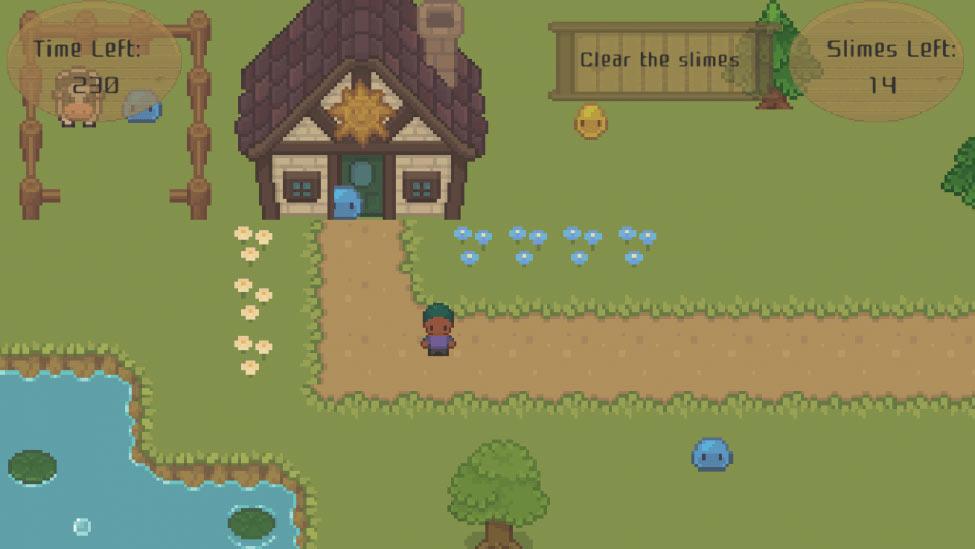
The first two years of Guida’s major focus on developing the fundamentals of game programming, with courses that explore artificial intelligence (AI), programming, patterns, pathfinding, and more. This helps students understand how to program the AI in video games, such as the non-player characters, to react to the player and environment. More advanced classes delve into augmented reality and virtual reality, development, and game publishing.
Guida also wanted to ensure that these students weren’t just learning the technological side, as the industry isn’t made up of coders and programmers alone. In his conversations with colleagues working in the industry currently, he realized the importance of a well-rounded, interdisciplinary approach. He explains, “When you're developing games, you're not in a vacuum. You need to work with artists, you need to work with writers.” Because of this, Guida designed the program to incorporate other disciplines, including digital media studies, writing, film, and math.
It's very powerful if you come into an interview and you can show them actual work you’ve done.
While working toward their BS in Game Development, students will actually develop, program, and publish their own games which can be used when they’re ready to begin the job-hunt. “When I interviewed for my job here, I brought an iPad loaded with games I had made,” Guida explains. “It's very powerful if you come into an interview and you can show them actual work you’ve done.” The major culminates in a capstone class that reinforces this experiential approach. “The students act like a tiny game studio and have 14 weeks to produce a game,” Guida says. They work together with a small team to produce a game, from the initial game development document to publication.
This hands-on, project-based methodology is a throughline in the degree program, giving students not only theory and practice, but the opportunity to build a robust portfolio. “By the time students are done in four years they have a platformer game, a top-down game, a first-person game, a mobile game, a VR game, a highly finished polished game, and so on,” says Guida. “They’ll have made games in different genres, different settings, and different styles; so, they’ll have a really good portfolio when they go out to apply for jobs.”

Guida’s game development major received final approval this past fall, and incoming students are already beginning to enroll, getting in on one of the fastest-growing industries of tomorrow. “The game industry as of 2020 is bigger than the film industry and music industry combined,” Guida said, and it is projected to grow.
More people are playing games than ever before, and gaming demographics are broadening. “Everyone has phones with games on them, it's such a regular thing,” Guida says. “Every day on the subway I see people playing games, you know. These aren't ‘gamers’, these are just regular folks just playing some games." Even casual games like Candy Crush, which likely isn’t the first example that comes to mind when thinking of video games, has a userbase of over 250 million and yearly revenue exceeding $1 billion.
Every day on the subway I see people playing games, you know. These aren't ‘gamers’, these are just regular folks just playing some games.
What’s more, people are beginning to give video games credit as an artistic medium. Not only has the Museum of Modern Art declared video games as a form of art, but storytellers and filmmakers are getting in on the action. “I get film majors in my classes all the time because for them, games are just another way to tell a story,” Guida says. “Netflix actually recently said they view games as their biggest competition for audiences; they’ve even started to release their own games as a result.” Studios are increasingly turning to video game intellectual property for content, such as the Super Mario Bros. movie (grossing over $1 billion worldwide!) and the critically acclaimed HBO show Last of Us.
It's likely we are entering a golden era of video game development, and with Pace’s new game development major, Pace students are positioned to become leaders and pioneers in this booming industry. "The timing is really good,” Guida says. “There aren’t many schools offering this kind of major, but I think this will be a regular thing in 15 years." As the industry levels up, Pace students are primed to join the game and shape the future of gaming.
Get all the information you need on Pace’s new BS in Game Development, and explore Pace’s library of student-created games.
More from Pace Magazine
Through Show and Spell, a captivating game designed to enhance social and emotional learning in children, Pace's Stan Royzman, PsyD, is helping children in a way that is simultaneously engaging and seeks to bolster positive therapeutic outcomes.
Through a grant from the New York State Department of education, School of Education Professor Jennifer Pankowski is helping students with disabilities to thrive at Pace and beyond.
Through a $1.48 million grant, Pace is providing a blueprint for large-scale energy-efficient projects.
Pace Women’s Lacrosse Team Honored at New York State Capitol
New York State Senate Majority Leader Andrea Stewart-Cousins and members of the Westchester state delegation on Tuesday honored Pace University's women's lacrosse team at the New York State Capitol.
The team was recognized for their extraordinary season that culminated with the 2023 Division II National Championship, which marked the first time a school from Westchester County won a national title. The celebration at the Capitol precedes the upcoming NCAA Championship Ring Ceremony scheduled for Friday, adding to the festivities surrounding the team's historic achievement.
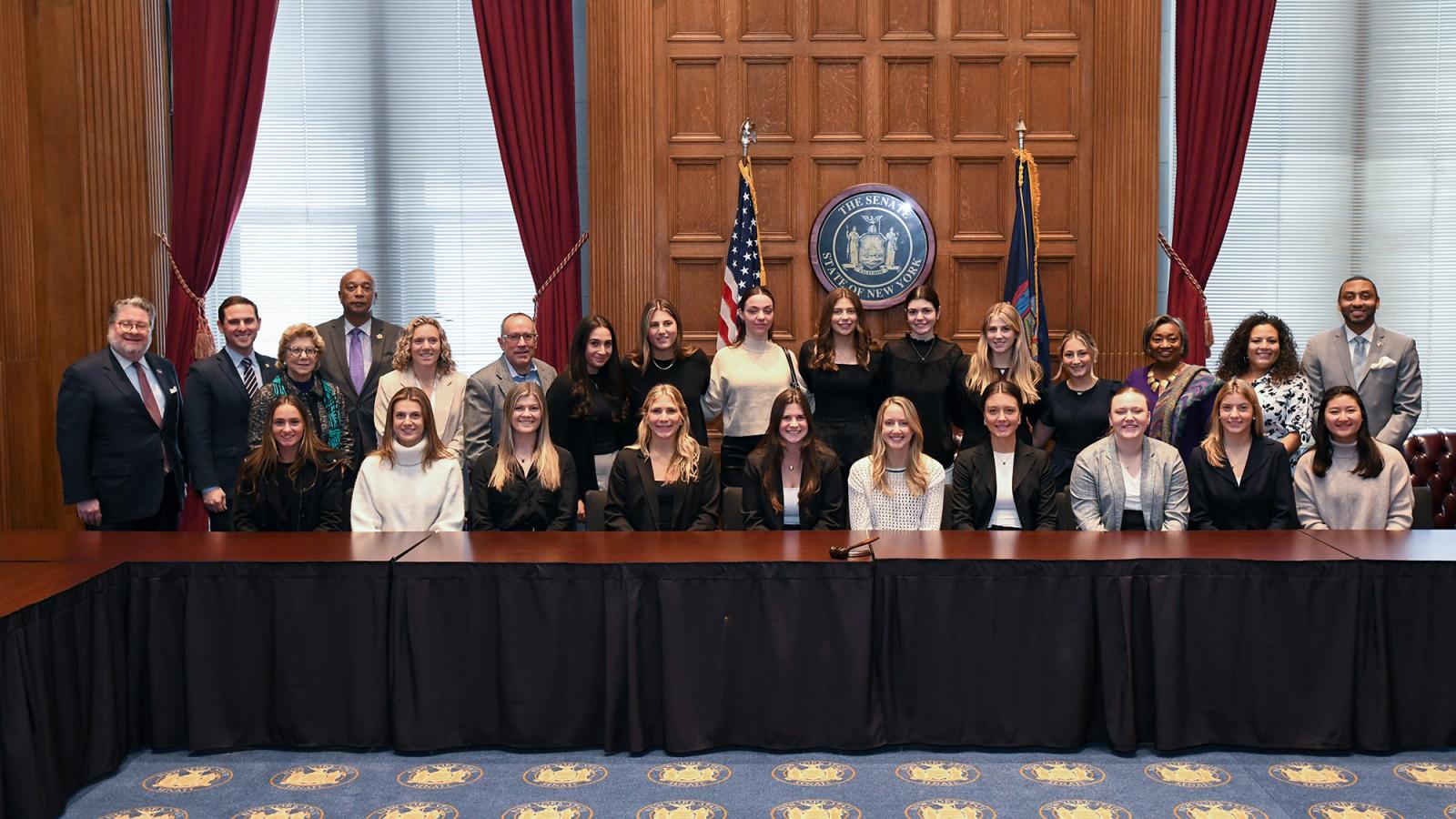
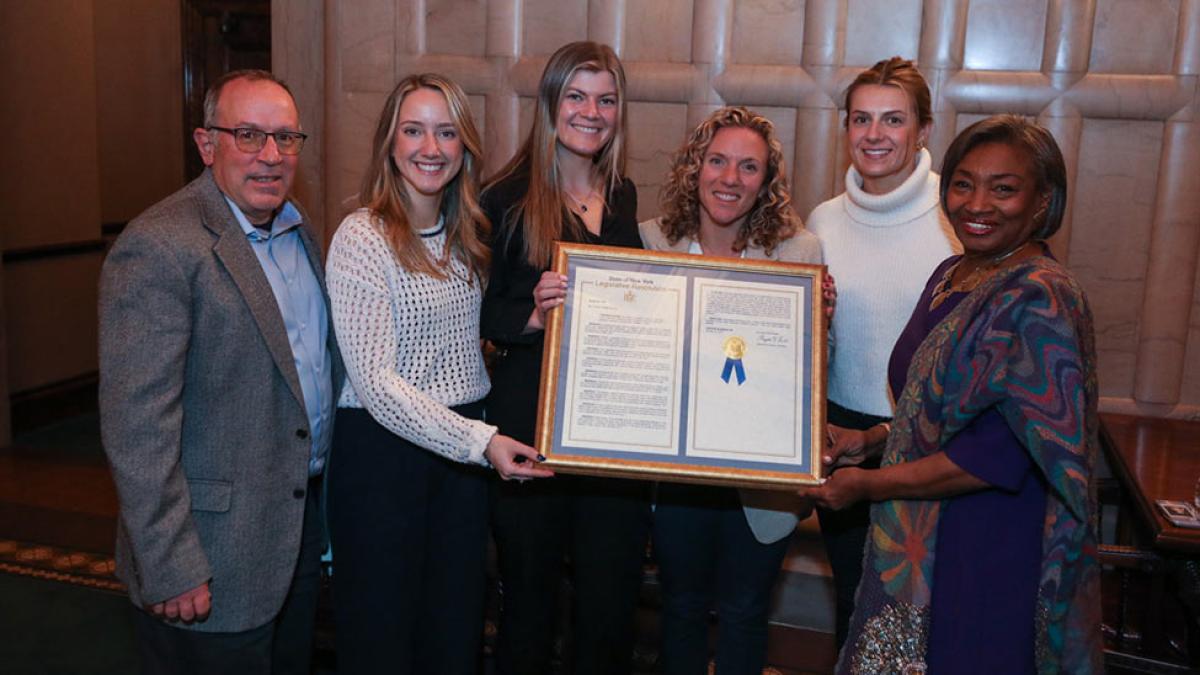
Senate Majority Leader Andrea Stewart-Cousins: “These young women proudly took Westchester County and New York State into a national arena”
Ring ceremony scheduled for Friday in Westchester
New York State Senate Majority Leader Andrea Stewart-Cousins and members of the Westchester state delegation on Tuesday honored Pace University's women's lacrosse team at the New York State Capitol.
The team was recognized for their extraordinary season that culminated with the 2023 Division II National Championship, which marked the first time a school from Westchester County won a national title. The celebration at the Capitol precedes the upcoming NCAA Championship Ring Ceremony scheduled for Friday, adding to the festivities surrounding the team's historic achievement.
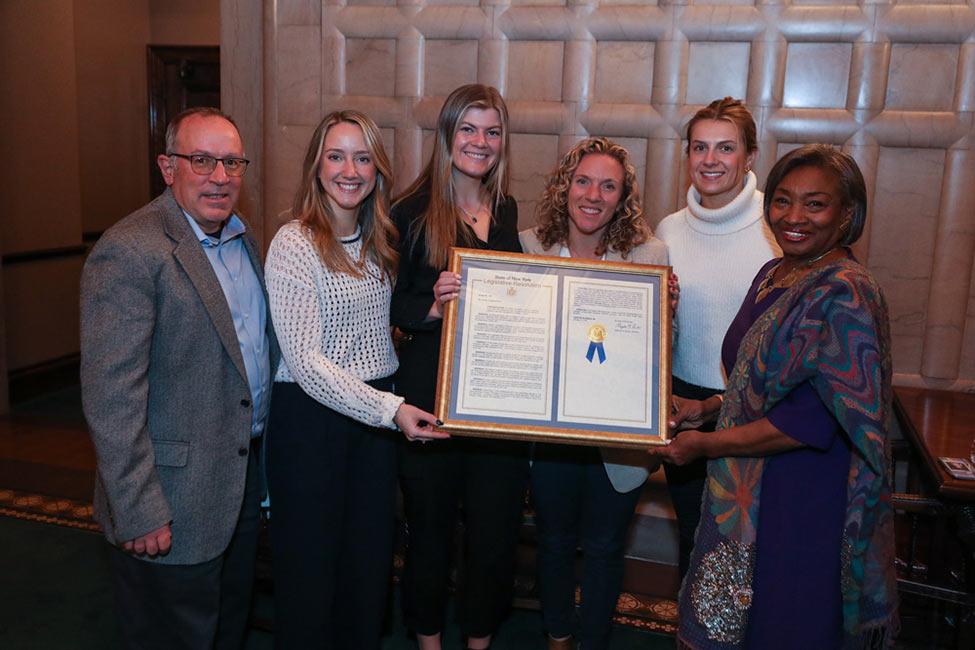
“I am so honored to welcome the Pace Women's Lacrosse team who are national champions in their sport,” Majority Leader Stewart-Cousins said during remarks on the Senate floor. “Most of them are New Yorkers, most of them have never been to our beautiful capitol, and certainly all of them, were born after the Title IX enactment, which allowed for the government to acknowledge women's ability to place sports, and to be funded the way that men's teams were funded.
“I grew up in a time where girls were expected to be cheerleaders, stay on the sidelines, and not really participate in serious sports,” she added. “It's important to know that government works in many ways to level the playing field and when we level the playing field, we get to see excellence from everyone.”
Watch the Majority Leader’s and other State Senator’s remarks
Throughout the day in Albany, Pace’s student athletes received warm greetings and accolades from members of the Westchester delegation, including Assemblywoman MaryJane Shimsky, Assemblyman Matt Slater, Assemblywoman Dana Levenberg, Senator Shelley Mayer, Senator Peter Harckham, Senator Jamaal Bailey, and Senator Nathalia Fernandez, many of whom praised the players during their respective legislative sessions.
Assemblymember Shimsky, who represents the Pleasantville campus, introduced the team during the Assembly session, while Majority Leader Stewart-Cousins introduced them in the Senate session.
“The Pace University women’s lacrosse team are Division II NCAA National Champions, they also have the distinction of being the first NCAA from Westchester County,” said Assemblywoman Shimsky. She continued by individually recognizing each player by announcing their name.
“Today has been an unforgettable experience, it is such an incredible feeling being acknowledged for our hard work and achievements,” said Angelina Porcello, National Player of the Year, of Eastchester. ”The overwhelming support we've received, coupled with the chance to explore the amazing architecture and history of the Capitol building, has been truly remarkable. We have had the opportunity to meet amazing and inspiring people within the Capitol building and we are just so grateful to have been invited to such a beautiful and important place.”
The Setters, who begin their pre-season this week, won the National Championship in Indianapolis in May by defeating previously unbeaten West Chester, 19-9. The 19 goals scored by the Setters were the most-ever scored in a DII Women's Lacrosse championship game.
The Setters, who finished the season ranked No. 1 in the nation with a 21-2 record, won a staggering 17 games against ranked opponents during the 2023 season, including a Golden Rams team that came into the National Championship game a perfect 22-0 on the year.
In June, they joined college athletes from across the country representing all three NCAA divisions—national championship winners—that were recognized at the White House as part of the inaugural "College Athlete Day." In September, Pace University honored members of the team at halftime of the Pace football game at Northwell Stadium in Pleasantville where the winning championship banner was unveiled. Additionally, earlier this year the Governor Mario M. Cuomo Bridge was illuminated in Pace blue and gold.
“Thank you to Majority Leader Stewart-Cousins for extending the invitation to the New York State Capitol and recognizing our team’s National Championship victory,” said Emma Rafferty, a midfielder from Bayshore, N.Y. ”Having the opportunity to sit on the Senate chamber floor while the team was acknowledged is one I will truly cherish.”
“It’s incredibly gratifying to be recognized before so many people who have been supportive to us in our exciting national title run,” said Head Coach Tricia Molfetta, who is beginning her seventh season with the team. “This year has been marked by numerous unprecedented milestones for our program, and this conclusion feels like the perfect culmination of our extraordinary season. I am so grateful we were able to end our year in such a monumental way and I know the experience today will be one this team will share with their friends and families for the rest of their lives.”
About Pace University
Since 1906, Pace University has been transforming the lives of its diverse students—academically, professionally, and socioeconomically. With campuses in New York City and Westchester County, Pace offers bachelor, master, and doctoral degree programs to 13,600 students in its College of Health Professions, Dyson College of Arts and Sciences, Elisabeth Haub School of Law, Lubin School of Business, Sands College of Performing Arts, School of Education, and Seidenberg School of Computer Science and Information Systems.
Learning Beyond Limits
Experiential learning isn't just a trend in higher education; it's the heartbeat of the Pace experience. From donning hip-waders to assess water quality, documenting first-hand narratives of a groundbreaking era in human history, immersing in a transformative semester in LA, to initiating and overseeing on-campus businesses from inception—Pace students don't just learn, they do.
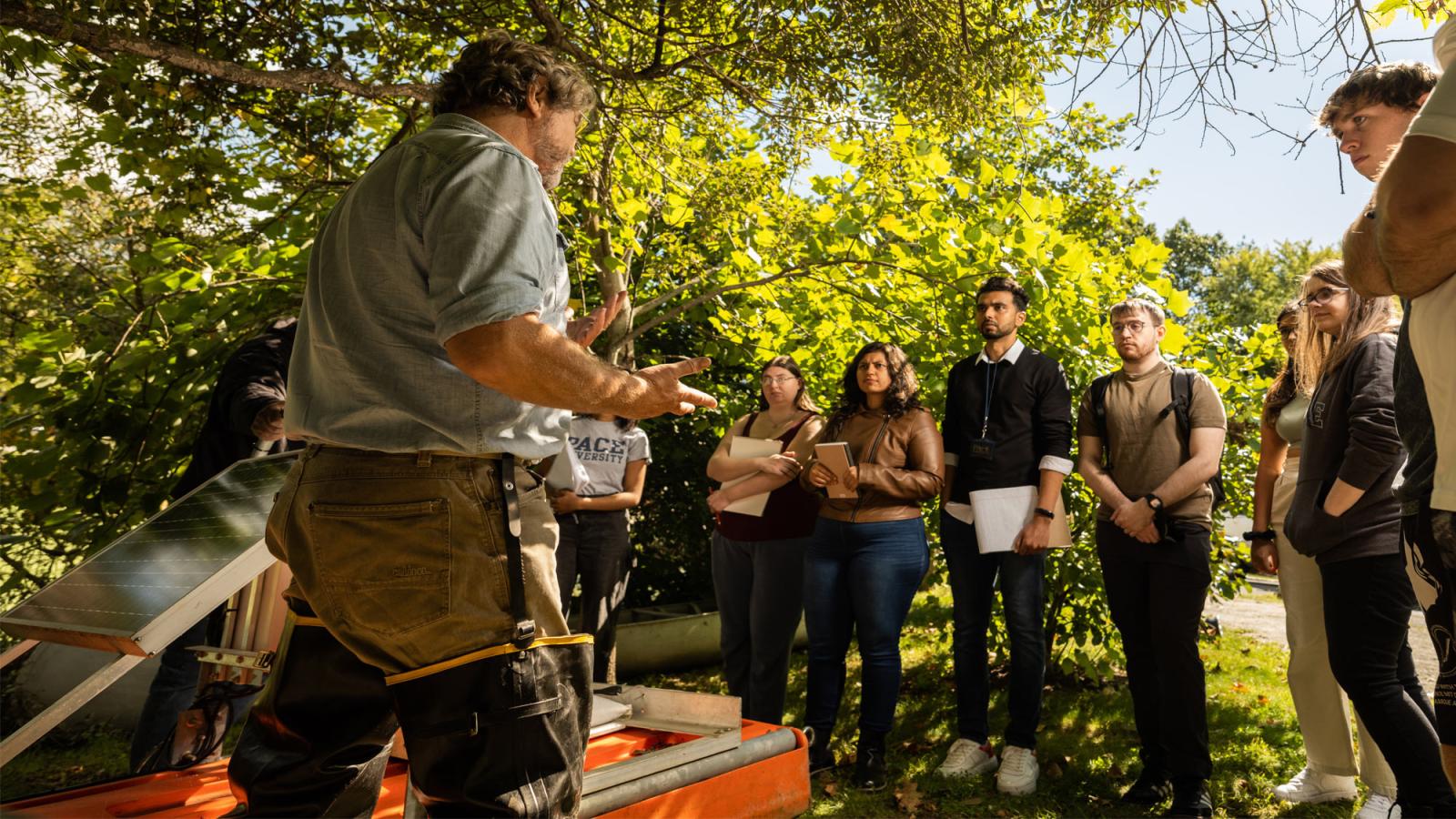
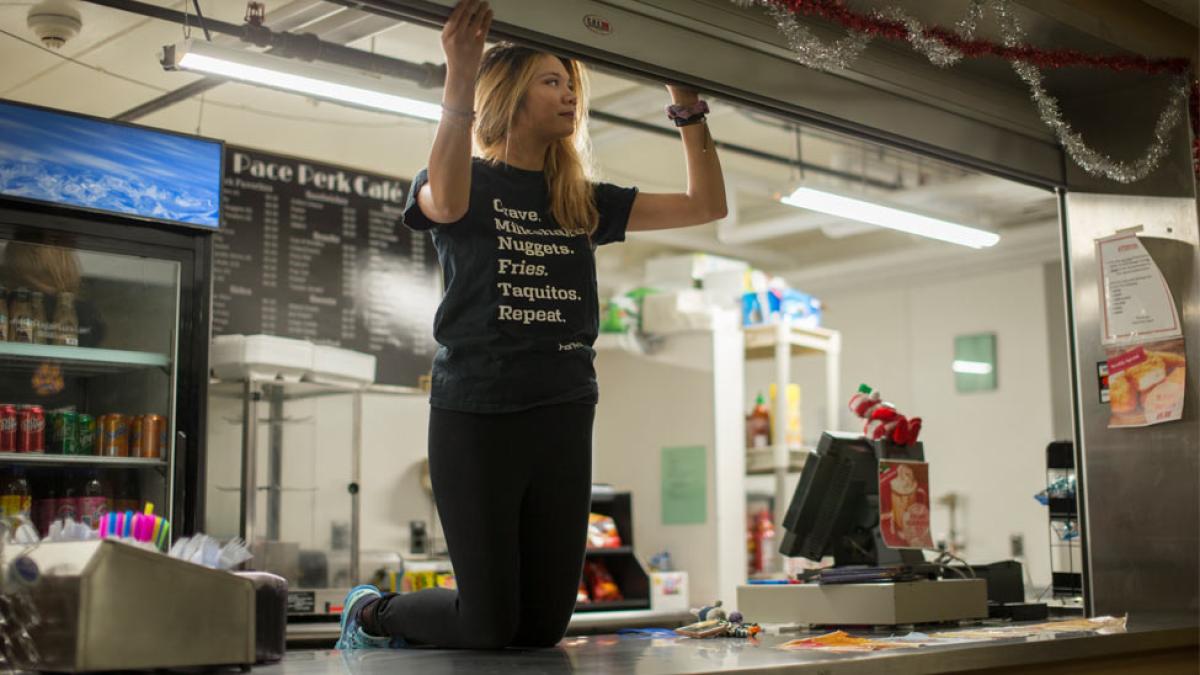
In recent years, there’s been a significant increase of focus on experiential learning in higher education, and for good reason. When it’s done well, experiential learning goes beyond preparing students for internships and full-time jobs. Students who have the opportunity to do their own research, make creative decisions, and take control of their learning are more likely to feel confident in shaping the world that they wish to see and live in. At Pace University, students across the University have opportunities to engage in experiential learning from their first year through graduation. This is the Pace difference—where learning is not a spectator sport but an exhilarating adventure that shapes resilient, adept leaders.
Director of Experiential Learning and the Pace Path Kelley Kreitz, PhD, supports and builds experiential learning opportunities—a key priority for Pace—within the University. “Pace has experiential learning opportunities running throughout our schools and liberal arts core curriculum,” Kreitz says, “Which allows students to participate in classroom-based research and civic engagement projects from their first day."
These opportunities help students build up their resumes before graduation, as well as support a widening of interests, exposure to new ideas, professional paths, and prospects that shape college experiences and ultimately lead to a fulfilling career.
Experiential Learning Across the Colleges
The strategic plan for experiential learning at Pace explains that “experiential learning is at the core of what we do. It encompasses learning both in and outside of our classrooms and involves students in original research, community engagement, internships, clinical placements, practical learning, problem solving, and building their professional skills.” Each college and school within the University offers unique chances for students to engage in their field of study, whether in class or in the community.
At the Seidenberg School of Computer Science and Information Systems, students can join the Blue CoLab team of interns, faculty, and staff to develop systems that protect humans and environmental health from water contamination. Within the Dyson College of Arts and Sciences, students can enroll in a course that provides them with the background and skills to collect oral history interviews covering COVID-19 and Black Lives Matter. Within the newly formed Sands College for Performing Arts, commercial dance majors travel to Los Angeles for a semester to practice directing, producing, acting, and dancing in their own shows. At the Lubin School of Business, students can gain hands-on managerial experience working with one of the five student-run businesses through the Center for Student Enterprise.
At Pace, “experiential learning” isn’t just the phrase du jour—it’s who we are. It’s who we’ve always been.
Blue CoLab: Right to Know What’s in Our Water
“We don’t know what’s in that glass before we drink,” Professor John Cronin, director of Seidenberg School’s Blue CoLab says. “I have a right to know what’s in my water.” And he would know. Cronin is known internationally for his 17 years as Hudson Riverkeeper and was named a Time magazine Hero for the Planet for his work fighting river pollution. At Pace, Cronin has been pioneering experiential learning for more than 20 years. He’s no stranger to inspiring student advocacy, as co-instructor for the Environmental Policy and Animal Advocacy clinics, coordinator of the annual Mock Legislative Hearing Competition, and even having co-founded Haub Law’s Environmental Litigation Clinic.
That’s the foundation of Blue CoLab, a project providing hands-on experiences in technological monitoring of water quality. With a strong commitment to the principle that there’s a human right to clean water, which requires the right-to-know that the water is clean, the program involves training, innovation, and research in real-time water monitoring technology.
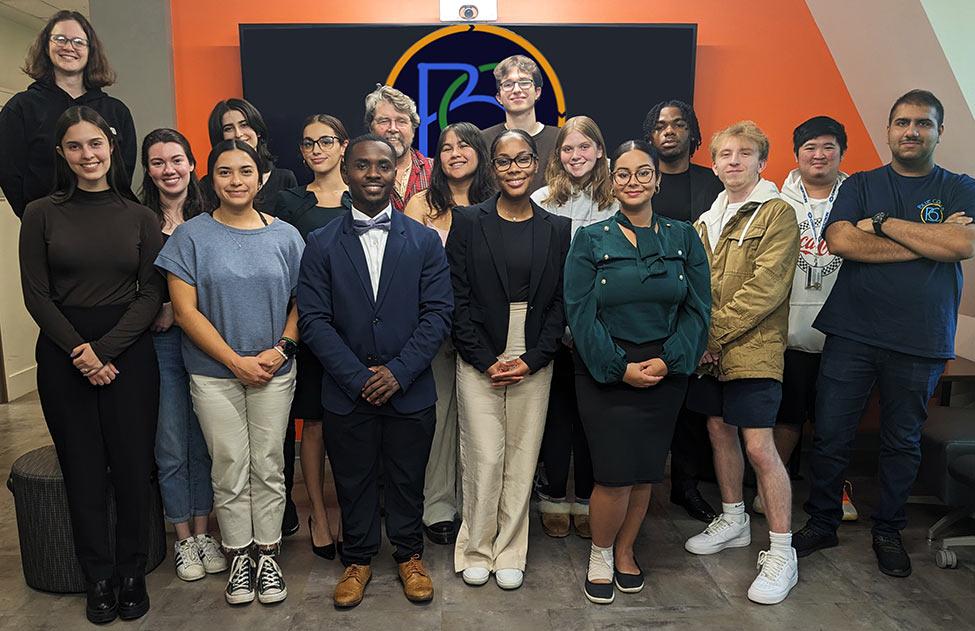
More than two billion people will be threatened by unsafe water this year, which can lead to waterborne illnesses and other negative health outcomes. While many Americans see unclean water as an issue only in underdeveloped countries, the impact is local as well. This is demonstrated by the long-lasting impact to Parkersburg, West Virginia, caused by chemical dumping by Dupont and the lead contamination of drinking water in Flint, Michigan. In addition, 19.5 million illnesses are caused by pathogens in water in the US annually.
Cronin, Professor Leanne Keeley (who is Blue CoLab’s technical operations director), and a team of dedicated students work on the Pleasantville Campus tracking the health of Choate Pond, which eventually drains to the Hudson River. Meryl Mizell ’25, computer science major and Right-to-Know H20 team coordinator, explains the process, “In our pond, we have water quality sensors that monitor the water quality. We’re able to use that tech to pull data from the pond to allow people to see what the pond water quality is in real-time.”
The solar-powered water quality monitoring stations, lovingly named Ada and Alan (after 19th century mathematician Ada Lovelace, and British computer scientist Alan Turing, who broke the Nazi Enigma code) take measurements every fifteen minutes and send that data to a Seidenberg server. The team then uses that data to evaluate the water quality, create apps, products, and presentations that help deepen the public understanding of water. The pond serves as Blue CoLab’s “living laboratory,” complementing its data lab in Goldstein Academic Center and its tech lab off-campus.
“So overall, we do focus on the campus using the pond, but we want to implement it on a global scale,” says journalism major Lilah McCormack ’25. “The forefront of our idea is having the right to know what’s in the water we drink in real time. We do get water quality updates from local government agencies, but they only come after a year after you’ve used that water, so they’re not very useful in making healthy decisions.”
We have a really unique opportunity here at Pace, and I think that comes from our mentorship. What we’re doing here is really special.
Students work closely with Professor Cronin, who has been working on environmental issues for over 50 years. Lilah attributes the success of the Blue CoLab program and experience she is gaining to the mentorship and knowledge shared by Professor Cronin. “We have a really unique opportunity here at Pace, and I think that comes from our mentorship. What we’re doing here is really special. Sure, there’s a lot of initiatives towards ending the global water crisis, but nobody’s thinking about the technological advances that can make it possible.”
Recently, the six students who work on Blue CoLab’s Right-to-Know H20 project were accepted into the 2023 class of the United Nations Academic Impact and Millennium Campus Network Fellowship Program. The semester-long program gives students the opportunity to lead projects that advance the UN’s Sustainable Development Goals. The students working as part of the Right-to-Know H20 team are not merely advocates in civic engagement, but an active force striving to fulfill the United Nations’ Sustainable Development Goal, recognizing water as fundamental to all aspects of life. To aid the mission, the Right-to-Know H2O Team has petitioned the United Nations Secretary General António Guterres requesting the UN to declare the right-to-know water quality a fundamental human right.
The ability for these students from across the University to engage with experiential learning that revolves around critical scientific work helps to shape their college experiences, what they hope to do in their careers, and the way the world interacts with water.
“The work that we're doing here at Pace University is just the beginning of what’s possible,” concludes Sasha Palmer ’25.
The Oral History of COVID-19 and Black Lives Matter
The COVID-19 pandemic and the Black Lives Matter movement during 2020 forever shaped communities around our nation. Capturing first-hand experiences of how these events impacted people is a critical part of providing primary sources for future researchers, and that’s what Assistant Provost and Clinical Associate Professor of History Maria Iacullo-Bird, PhD, set out to achieve with her Oral History Project.
“Interviews provide a way to center personal human experiences during major historical events,” Iacullo-Bird says, “which become even more important as times of crisis and momentous change recede into history. I am excited that Pace undergraduates have generated primary sources to provide first-hand knowledge about watershed historical events.”
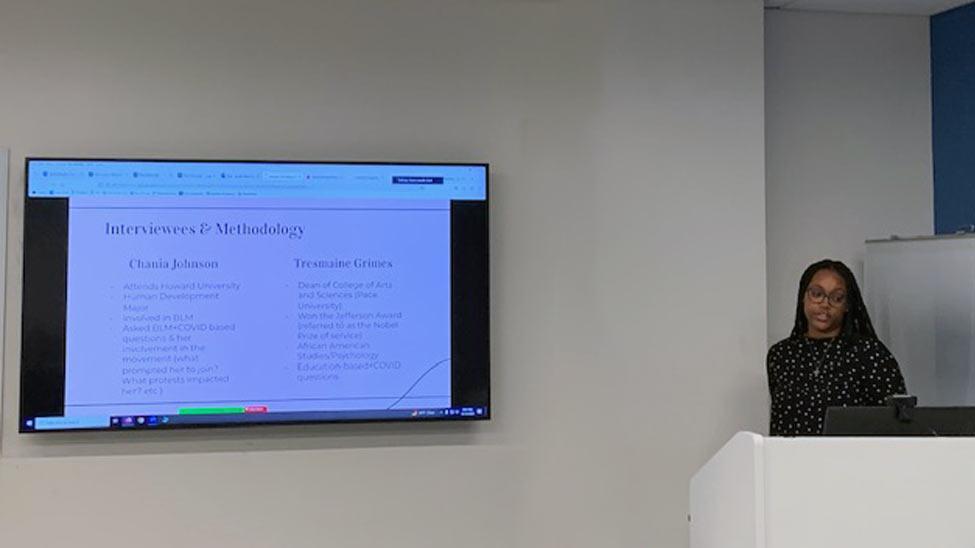
The project was developed as part of Iacullo-Bird’s Honors history course, HIS 196H: COVID-19 and Black Lives Matter: Comparative, Crisis-Based Oral History in the American Experience. The course is designed as a Course-Based Undergraduate Research Experience (CURE), which gives students training as oral historians to conduct research. Iacullo-Bird explains that this course in particular “explores the intersectionality between disease and social justice struggles.”
After students gain an understanding of the importance of oral history and develop close listening skills, students are tasked with selecting interview subjects and preparing questions that capture their interviewees’ unique experiences. Recent interviews are stored online on the Oral History webpage as a resource for other students and researchers.
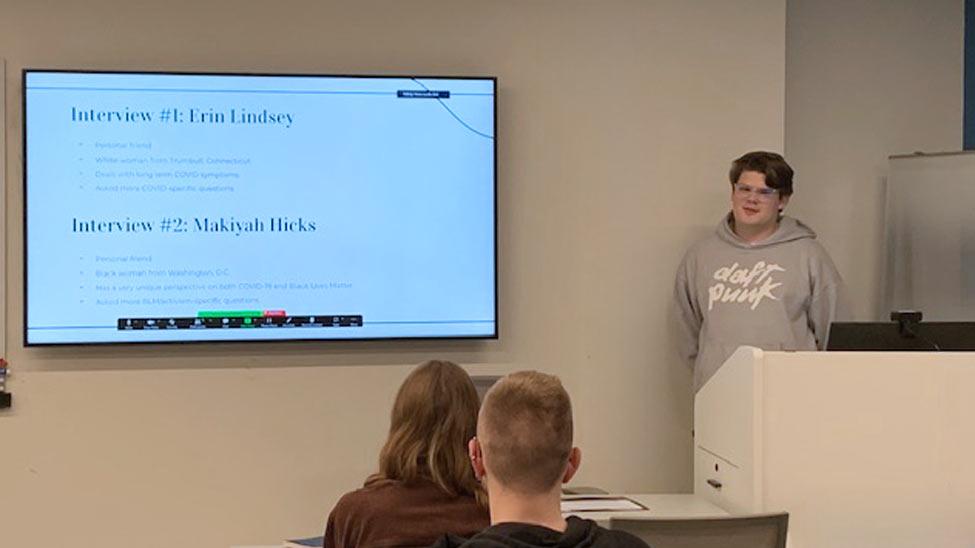
“The interviews I conducted were great experiences,” says film and screen studies major Carter Haskins ’24. He explored the intersectionality between race and the long-term health impacts caused by COVID. “I found that the conversation came naturally. I ended up going to interviews with a prepared list of questions but not using them, and the outcome was fantastic.”
I feel like I will be able to engage in more meaningful research now that I understand the importance of considering how a historical event affects those experiencing it.
Jillian Igneri ’26, added, “During the early stages of my interview preparation, I was excited by the prospect of exploring aspects of recent crises, namely the COVID pandemic and the matters of racial injustice throughout 2020, that I had not experienced through my own eyes as they occurred.” This led Jillian to explore how educators dealt with the disruptions to learning caused by the pandemic as well as how educators’ roles in helping students grapple with social change evolved.
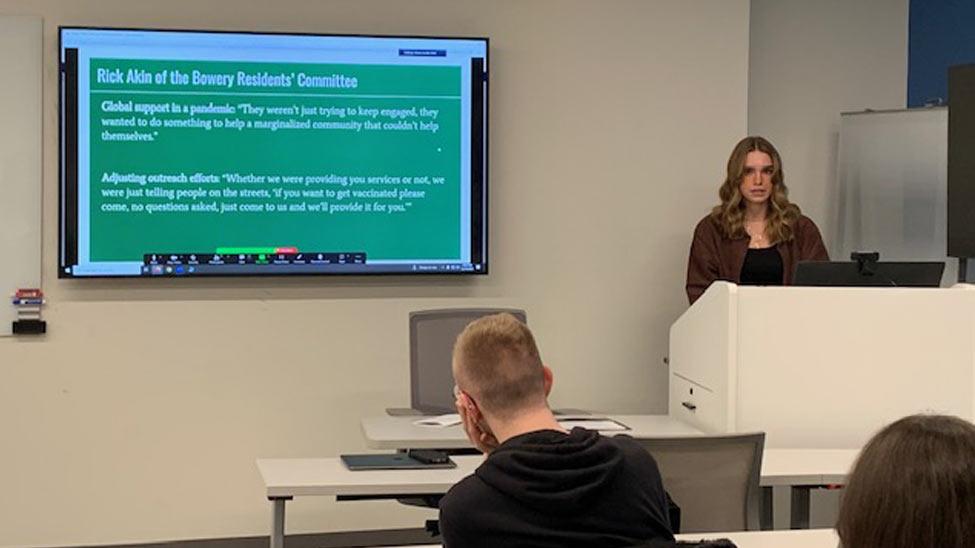
“Oral history has allowed me, as a history major, to engage with my community outside of the traditional academic space,” shared Natalie Filkins ’25, who focused her research on the impact COVID had on the unhoused population of New York City. “I feel like I will be able to engage in more meaningful research now that I understand the importance of considering how a historical event affects those experiencing it.” She adds, “As a historian, I found this project to be incredibly engaging, requiring me to exercise skills I haven’t used in other history courses.”
Na’Mya Sinclair ’26, a nursing student, who researched the Black Lives Matter movement and the function of higher education learning experiences for people of color, plans to continue studying nursing. However, she shares that “this project has significantly informed how I aspire to participate in the Pace University, New York City, and global communities. I am inspired to actively participate in discussions and initiatives that address racial inequalities, particularly within the university setting.”
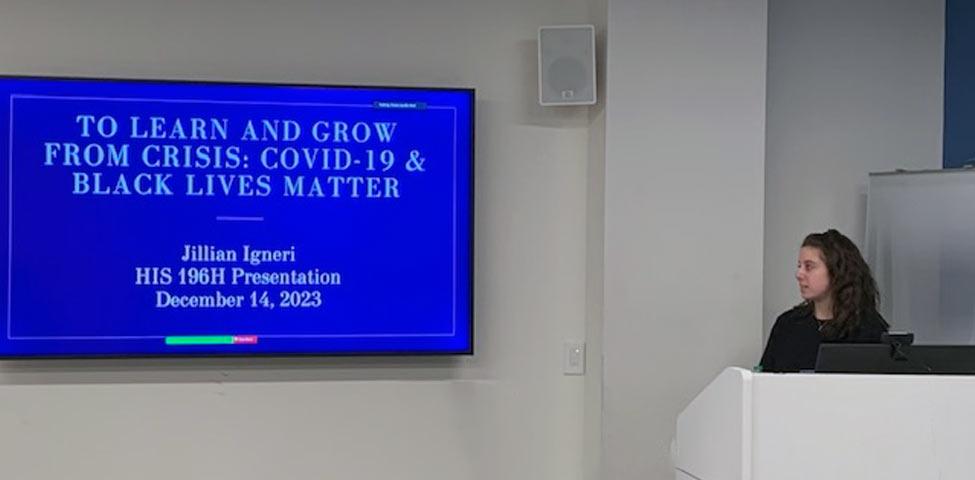
Iacullo-Bird hopes that students will “deepen their understanding of how to be engaged citizens and problem-solvers in community-building projects.” The skills they develop through the research-based course also enable students to clarify career goals and apply what they have learned both in their studies and the workplace.
A Semester in Los Angeles for Commercial Dance
“I remember telling the class of 2026, LA is the best semester. Just wait until you get to LA, you’re going to have the time of your life,” says commercial dance alumni Tiffani Russell ’23. She adds, “The previous statements were understatements.”
The goal of the commercial dance program is to prepare students to navigate the entertainment industry—across Broadway, concerts, TV, film, and working with music artists—as a dancer. Program head Rhonda Miller wants to set students up to be “completely prepared” to be comfortable with any style of dance, have the tools to book work, manage, and sustain longevity in their long-term careers.
Spending a semester in LA gives Pace students the chance to acquire and practice these skills. While dancers hone their skills in ballet and jazz in California, they’re also learning how to dance for the camera. “Dancing on camera is very different from dancing on stage,” explains Miller.
Tiffani says that the classes “advised us to think outside of our physical talents.” Students are challenged by industry professionals to learn about the variety of roles required to create movies, TV shows, concerts, Broadway performances, and music videos. The master teachers, who are active industry professionals, visit the students multiple times throughout the semester and provide information on the additional roles available in the industry beyond just dance.
Jillian Meyers, well known for working with Evolution Dance Company and Janet Jackson, is a regular instructor during the semester. Tiffani shares that Meyers taught about “the roles outside of dance that make up the industry, types of cameras, and how to choreograph for the camera. For a commercial dancer, exposure to these working professionals in an educational setting is unheard of.”
Students also have the opportunity to connect with agents, who act as a dancers’ representation and facilitate auditions. Working with bi-coastal agencies sets students up to find work in Los Angeles and New York City. Miller brings agencies to the students throughout the semester, giving agents time to watch the students dance in a private setting. As a follow up to that initial introduction, students prepare a showcase for the end of the semester, where dance agents, choreographers in the industry, and directors will be in attendance.
The stress of getting an agent is off the table. I feel very proud of that because a lot of people move to LA or New York, and they have to go to these huge calls to try to get an agent. Whereas I’m bringing the agencies directly to the students.
“Our showcase is exciting because some performances are done live in front of the agents, choreographers, and directors,” says Miller. “And then we also show a great deal of work done on film. Different projects that the dancers have done during the semester are shown so that agencies can see dancers in two different realms and decide someone is really great.”
Miller estimates that 70 to 75 percent of her students are agented by the end of their third year in the program, following the semester in LA. “The stress of getting an agent is off the table,” Miller says, adding, “I feel very proud of that because a lot of people move to LA or New York, and they have to go to these huge calls to try to get an agent. Whereas I’m bringing the agencies directly to the students.”
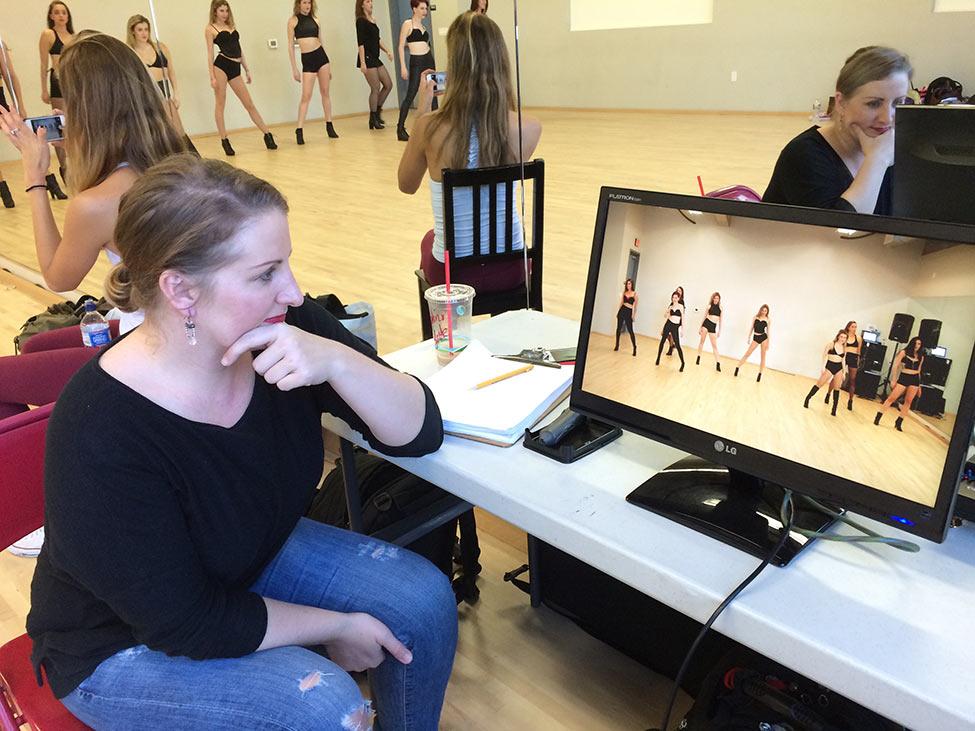
Students in the commercial dance program often work short gigs, like commercials, during their senior year, which is something the program is structured to accommodate. After graduation, students find success working with TV, film, and dancing with musical artists. “We had a lot of students that did the Video Music Awards last year in New York,” says Miller. “One alumna, Briana Pavon, is performing with Beyoncé now. At least two of our alumni received callbacks for tour auditions with Olivia Rodrigo, which just happened the week of January 8.”
Tiffani, who has gone on to work with Doja Cat at the 2023 VMAs, shared, “I have always dreamed of dancing behind an artist, seeing myself on my TV, or getting to perform live in front of an arena full of people. With the LA semester under my belt, those dreams were made possible.”
Managerial Experience with the Center for Student Enterprise
At the Center for Student Enterprise (CSE) within the Lubin School of Business, Pace students are doing more than just studying business—they’re running it. On the Pleasantville Campus, five student-run businesses provide real-world opportunities to over 65 students, who are gaining hands-on experience in management, marketing, finance, and operations.
These enterprises—Pace Mart, Pace Fit, Pace Delivers, Pace Perk, and Setters Stage—offer students a chance to go beyond the classroom and into the boardroom. Whether it’s sourcing inventory, analyzing financial statements, or managing social media campaigns, students are developing a toolkit of skills that set them apart.
“My experience working for Pace Mart has been truly a blessing,” says Pace Mart Senior Marketing Manager and Lubin BBA student Joseph Ingles ’25. “My hard skills and soft skills have enhanced greatly. Running a business like Pace Mart, sometimes things come up out of nowhere and you just have to adapt to the situation at hand. That experience has made me stronger and prepared for what is to come.”
Maggie Glynn is another student who can testify to how working at a student-run business has impacted her experience at Pace. Maggie ‘26, Public Accounting BBA and MBA, is the Chief Financial Officer of Pace Fit, the healthy snack bar located in Goldstein Fitness Center. “I have gained so much real-world experience from the CSE,” Maggie says. “I was drawn to Pace for the internship opportunities, but little did I know I would gain a deeper understanding of the workforce and what I want my role to be from working on campus. Working at Pace Fit allowed me to get real-world accounting experience as a sophomore. I learned what I love about the profession and where I can see myself continuing after graduating.”
She adds that she has gained invaluable technical and soft skills between managing a team, problem solving, and handling finances, “I learned how to prepare, analyze, and present financial statements for board meetings. I learned the value of communication, compromise, and leadership.” Maggie insists, “This continues to be a skill that sets me apart from other candidates when interviewing for accounting internships.”
All of the student managers tell me that when they go for interviews for internships or full-time jobs that all the interviewer wants to ask them about is their position at the student-run business.
Kathryn Winsted, PhD, is the director of the Center for Student Enterprise. She has a deep understanding of how experiential learning enhances what students do in the classroom and helps them discover what really matters in the world of business. Winsted has acted as the advisor to all five of the student-run businesses since they first opened in 2010, and has helped students succeed through different challenges, including COVID-19. Throughout the years, she has seen students thrive in their roles and launch into careers they feel passionate about.
“All of the student managers tell me that when they go for interviews for internships or full-time jobs that all the interviewer wants to ask them about is their position at the student-run business,” Winsted said. “My favorite story is when the student who was one of the original founders of Pace Mart went for an interview at J.P. Morgan, she was able to answer the situational questions with real experiences she had at the business she was running. She was hired on the spot.”
Beyond seeing students find success in their careers, Winsted knows that the students “learn so much more in their courses when they use it in running the businesses and bring that practical experience to their learning.” She hopes that they learn beyond classroom concepts as well, saying that there are many opportunities to practice handling conflict and problem solving, aiding them in becoming adaptable and finding self-motivation.
For students looking to maximize their time at Pace, the Center for Student Enterprise offers more than employment—it offers transformation. Just ask any of the students who’ve managed a budget, supervised a team, or pitched an idea—and walked away with the confidence to lead.
The Future of Experiential Learning at Pace
For Pace University, experiential learning isn’t just a flash in the pan and it’s certainly not a response to trending topics in higher-ed forums. The plans for hands-on learning will continue to include working on building even more first-year experiences, providing opportunities for students from across majors to work together, and eventually collaborative spaces to work on projects.
My overarching goal is to achieve a sense of identity, community, and pride in our approach. I want to realize our potential to be a nationally recognized model of an experiential future of higher education.
Kelley Kreitz knows that the University will continue to adapt. “Classrooms at all kinds of educational institutions have historically provided a one-way flow of information from the professor-as-expert to the student-as-learner,” she says, adding, “My overarching goal is to achieve a sense of identity, community, and pride in our approach. I want to realize our potential to be a nationally recognized model of an experiential future of higher education.”
More from Pace Magazine
Nestled in a corner of the 16th floor of the iconic 41 Park Row, a building steeped in history, the Pace Study is a hidden gem. Within its walls, the Study served as the workspace for Robert S. Pace, the second president of Pace University and son of co-founder Homer Pace. Nowadays, it's a haven for small, but significant University meetings.
When his wife Kimmi Stephens suddenly had a seizure, Tim Myers, a scientist studying epilepsy, felt his field of study abruptly collide with reality. This shocking moment sent the pair of Pace professors on a winding journey of recovery, resilience, and research, and ultimately to the creation of a new lab on the Pleasantville Campus.
Meet Cyber Range: Pace’s new, state-of-the-art facility designed to give students a collaborative, practical immersion in tackling real-life cybersecurity threats, all in real-time.
#PaceGoGetters: Ka’ramuu Kush
Kush joined the Sands College of Performing Arts Faculty in Fall 2022, and has hit the ground running. He's bringing his experience as a multi-hyphenate artist into the classroom to empower the next generation of performing artists.

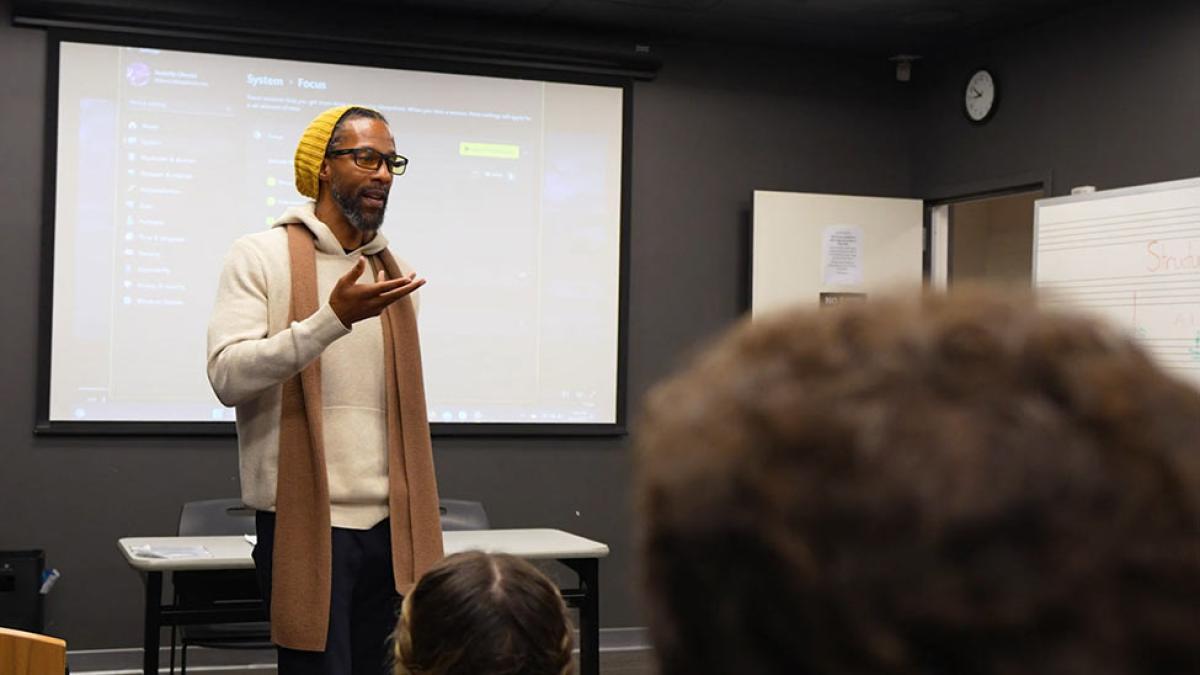
When Ka'ramuu Kush joined the Sands College of Performing Arts Faculty in Fall 2022, he was determined to bring a wealth of knowledge to the next generation of performing artists. Not only is he bringing a wealth of theory and artistic knowledge, he wants to empower his students with practical, actionable lessons that will help them succeed in the entertainment business.
More from Pace Magazine
Pace’s First Generation Program is dedicated to uplifting and supporting first-gen students who are often left to chart their own course. Read on for student perspectives on the unique challenges and experiences these students face.
Pace clinched the title of Westchester's best. Our Broadway spotlight is shining. Carbon emissions? We're slashing them. We've introduced a new initiative for hidden disability awareness. Oh, and did we mention our sleek new building in NYC? All this and more in 10 Things to Inspire You!
Nestled in a corner of the 16th floor of the iconic 41 Park Row, a building steeped in history, the Pace Study is a hidden gem. Within its walls, the Study served as the workspace for Robert S. Pace, the second president of Pace University and son of co-founder Homer Pace. Nowadays, it's a haven for small, but significant University meetings.
Katina Hill-Thompson '00: Making History in Service of Others
From Pace University to a historic PhD, alumna Katina Hill-Thompson ’00 has never wavered from her dedication to others. Read her story, where her call to make a difference has led her on a journey defined by barrier-breaking achievements, dedicated social work, and a fierce determination to transform lives.
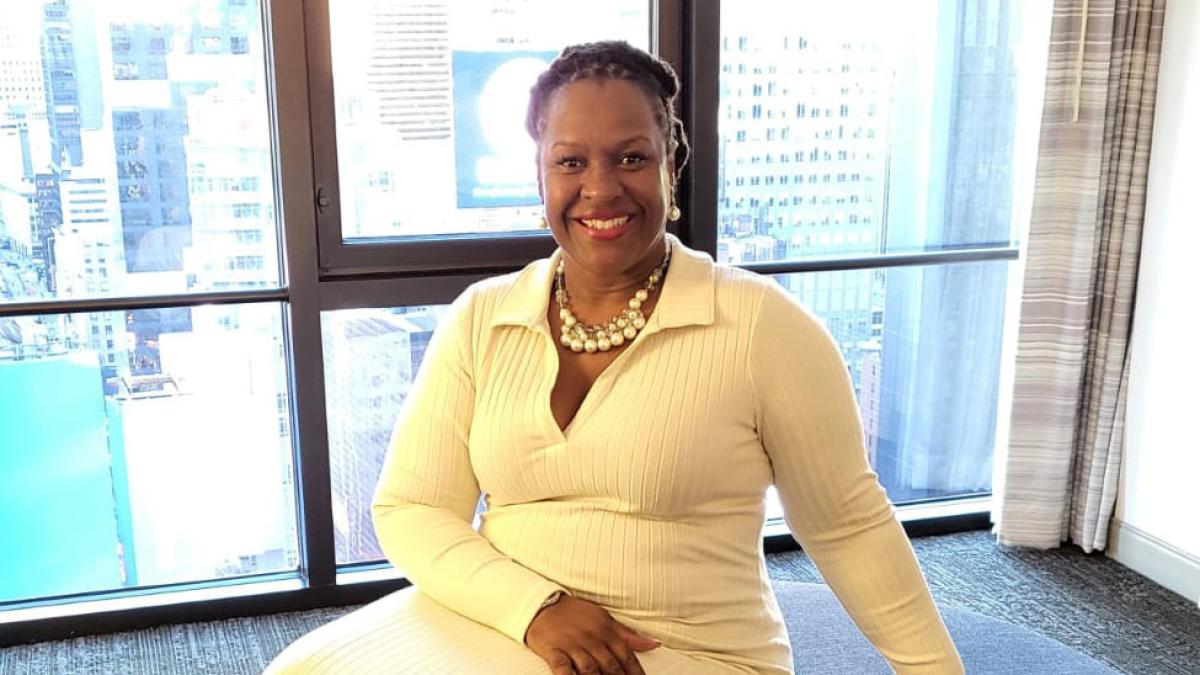
In a life defined by devoted service and compassion for others, Dyson College of Arts and Sciences alumna Katina Hill-Thompson ’00, PhD, LCSW, DSW, QS, has still found the time to make history through her own personal achievements.
Over more than 20 years, Hill-Thompson has forged a career founded on a higher calling—a passion for uplifting and inspiring others through social work and mental health counseling. All the while, she has recognized the value of continued education and professional growth in expanding her personal mission of service. To help others, she would need to invest in herself. And if that meant breaking down barriers and doing something that has never been done before, then so be it.
Because sometimes, that’s exactly what it takes.
In 2023, Hill-Thompson became the first-ever African American to graduate with a Doctor of Social Work from Florida Atlantic University. It was a landmark moment that cemented her legacy as a pioneer at the university and a trailblazer in her profession. But for Hill-Thompson, it was never about the recognition. In fact, she was already well into her doctoral studies when she first learned that her graduation would mark a historic first.
“I was floored when they first notified me,” Hill-Thompson said. “It was even more of a reason for me to continue moving forward no matter what battles I would face. I wanted to kick down the door to let others come through.”
"I wanted to kick down the door to let others come through.”
As a Pace University undergraduate, Hill-Thompson knew she wanted to dedicate herself to the health and wellbeing of others. It was something deeper than a career objective. It was a vocation, a sense of duty that she knew she would carry with her for the rest of her life.
When she enrolled in her first psychology class as an elective, she discovered a potential path for putting that calling into action. She found that she was fascinated by the human mind—the way it was shaped by its environment, the vast and endlessly compelling differences between individual people. She began to conceive of a way that she could help the vulnerable and marginalized with a holistic approach, taking into consideration not only their mental health, but their broader circumstances, the fullness of their stories and experiences.
She knew she wanted to marry her interest in psychology with her passion for care. But she credits a steadfast Pace mentor for helping her to take the next steps.
“Dr. Marie Werner was my mentor at Pace, and she continues to be my mentor to this day,” Hill-Thompson said. “She was the Black Student Union faculty advisor, and she solidified everything for me. I wanted to emulate her, be just like her. She helped me every step of the way, at each stage of my growth. She saw far more in me than I saw in myself. Our relationship remains strong, and I tell her all the time that she is the reason that I am who I am today.”
After graduating from Pace, Hill-Thompson attended Barry University in South Florida and earned a master’s degree in social work, a field at the convergence of her interests in human psychology and structural inequalities. Since then, she has assumed leadership positions at several social work organizations throughout her South Florida community, working in clinical and managerial capacities to provide counseling, care, and support to vulnerable patients, many of whom come from historically disadvantaged populations.
It is in her work with these groups, Hill-Thompson said, where she has seen her call to make a difference come most meaningfully to life.
“I’ve always been drawn to people who were disenfranchised and marginalized, because I am someone who comes from those populations,” she said. “Mental health was my calling, but social work allowed me to work with patients and understand their full experiences. I have a passion for showing them that no matter their background, they can achieve fulfillment in their lives. They can persevere. They don’t have to be a statistic. That’s what has driven me.”
That drive to empower others to rise above their circumstances—to become their best selves—is not merely a professional credo. It is a principle at the heart of Hill-Thompson’s worldview, a value that is central to her sense of self. This is evidenced by her partnership with her husband as longtime pastors at their church, where they provide counsel and spiritual ministration to a dedicated congregation.
As in her social work, Hill-Thompson’s spiritual leadership was born from an innate drive to help others overcome challenges and improve their lives.
“My faith has always been a part of keeping me strong and grounded, getting me through different difficulties,” she said. “I am very passionate about my work as a pastor. It’s something I will continue to do for the rest of my life.”
From Hill-Thompson’s time at Pace as a motivated undergraduate with big dreams, through her accomplished career, to her graduation as a doctor of social work—the first African American to earn that distinction in Florida Atlantic’s 63-year history—one thing has remained constant: an unwavering selflessness that inspires her to put the needs of others before her own.
Now, as a freshly minted PhD whose call to serve burns as bright as ever, Hill-Thompson has never been more motivated to continue harnessing her energy and experience to make the world a better place.
“Being the first African American to graduate with a doctoral degree in social work from FAU—I was shocked. I’m still shocked, but I know I have to keep going,” she said. “I want to show people that they can’t take no for an answer. That they’re stronger than they think they are, and that they have to fight for what they believe in. I am going to continue opening new doors for myself and creating new opportunities for others.”
More from Pace Magazine
Pace clinched the title of Westchester's best. Our Broadway spotlight is shining. Carbon emissions? We're slashing them. We've introduced a new initiative for hidden disability awareness. Oh, and did we mention our sleek new building in NYC? All this and more in 10 Things to Inspire You!
This fall was a landmark semester in terms of well-deserved accolades for a number of athletes and leaders who have been instrumental to the past success and continued excellence of Pace Athletics.
Pace’s First Generation Program is dedicated to uplifting and supporting first-gen students who are often left to chart their own course. Read on for student perspectives on the unique challenges and experiences these students face.
Breaking Records at the Job and Internship Fair
Record-breaking student turnout at the Fall Job and Internship Fair made it one of the largest job fairs in Pace history.
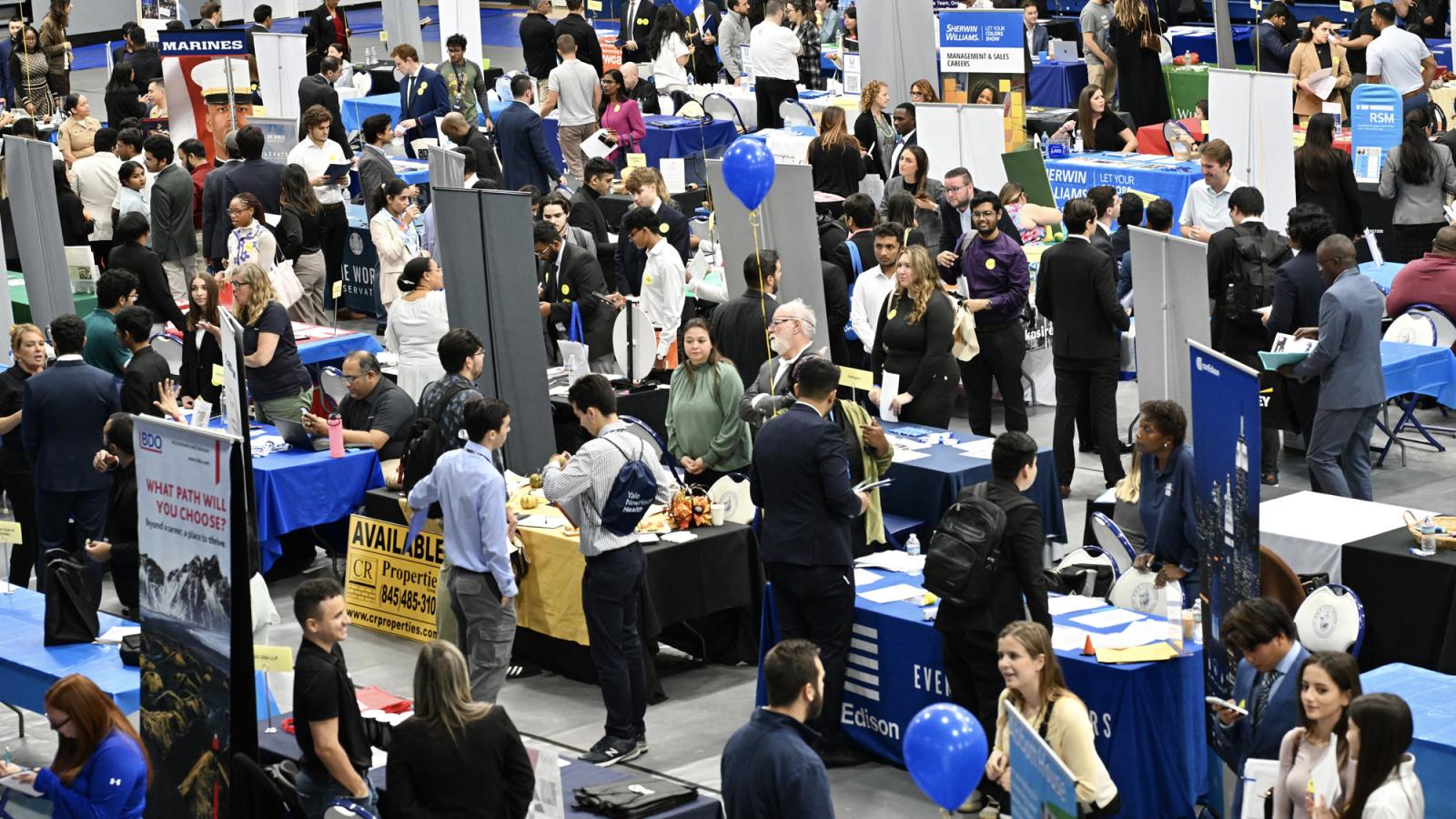
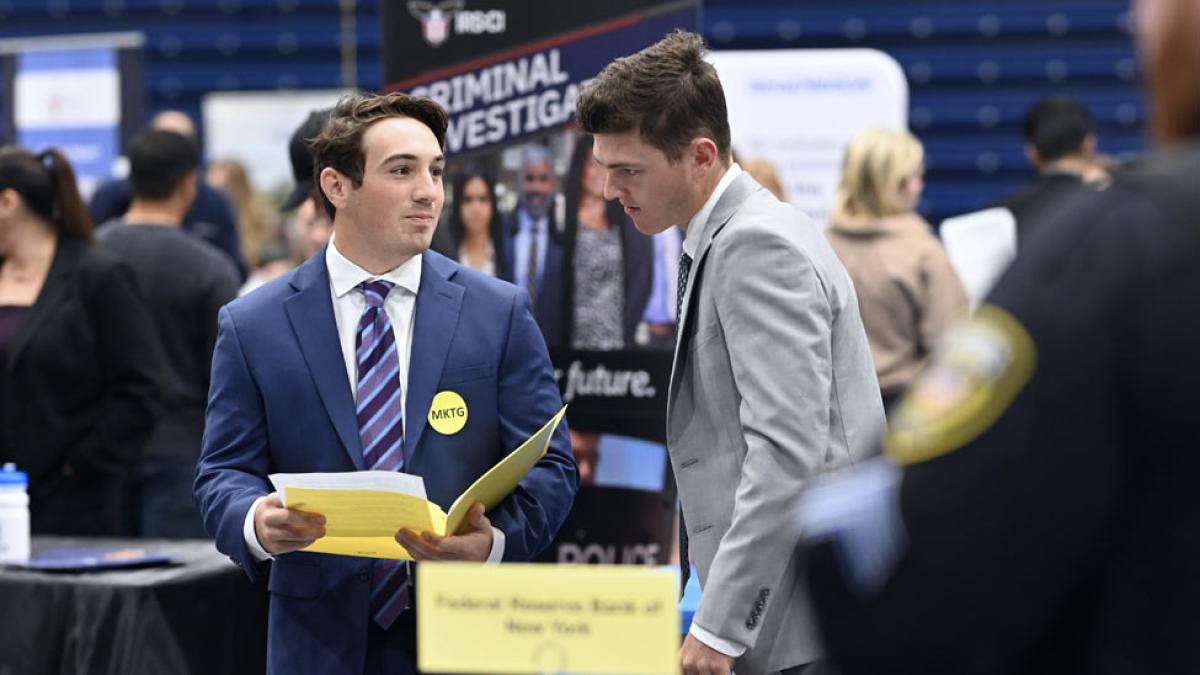
Approximately 800 students, including many from Pace’s New York City Campus, attended the employment fair, which boasted a lineup of over 115 companies, including big names like Northwell Health, Regeneron Pharmaceuticals, Sumitomo Mitsui Trust Bank, and Unilever. The atmosphere was lively, with employer-sponsored food and coffee trucks, smoothies from the University’s student-run businesses, and music, along with special amenities like a Quiet Room.
The fair, open to all majors, was sponsored by PricewaterhouseCoopers (PwC), one of the Big Four accounting firms. PwC offers a range of professional business services such as accounting, auditing, human resources consulting, and strategy management.
“It’s important to be exposed to different employers as this helps us navigate aligning our skills and interests to our future jobs.” —Rishitha Mandali '26
Phyllis Mooney, assistant vice president of Career Services, emphasized the Pace's commitment to early student engagement and impactful employer events. Mooney highlighted the goal of creating opportunities for students to secure great internships and jobs.
“At Pace, we understand the importance of engaging and preparing our students early, and creating impactful employer events that lead to great internships and jobs,” she says.
Pace’s Career Services is recognized regionally for providing comprehensive career counseling and programming to ensure that students are career-ready, able to confidently articulate the skills sought by employers in their industry. Over the last five years (2017–2021), Pace’s overall employment rate for bachelor and master graduates has consistently exceeded the national average by 10 percentage points, according to the National Association of Colleges and Employers (NACE) “First Destination Survey” report.
NACE’s latest Salary Survey report revealed positive outcomes for Pace's Class of 2022. Bachelor graduates earned full-time salaries $7,000 higher than the national average, with specific majors like registered nursing, communication, journalism, psychology, criminal justice and corrections, and finance reporting even higher earnings differentials. Master’s graduates in majors like education and accounting also outperformed national averages, with significant earnings differentials.
Pace’s Career Services doesn't just benefit students; it provides tailored, successful recruiting experiences for employer partners. This results in top brands, including Deloitte, EY, KPMG, Montefiore, New York-Presbyterian, Northwell Health, NYU Langone Health, and PwC, actively seeking out Pace graduates.
For Rishitha Mandali, a sophomore majoring in computer science, the packed room provided ample opportunities to land a job or an internship.
“It’s quite an advantage to have opportunities not only in New York City but also in Westchester,” said Mandali, who was among students from the lower Manhattan campus that attended the Job Fair. “It’s important to be exposed to different employers as this helps us navigate aligning our skills and interests to our future jobs.”
More from Pace Magazine
For the Nutrition and Dietetics Department within Pace’s College of Health Professions, the expansion of teaching kitchens means committing to a culture of wellbeing while educating future Registered Dietitians.
When his wife Kimmi Stephens suddenly had a seizure, Tim Myers, a scientist studying epilepsy, felt his field of study abruptly collide with reality. This shocking moment sent the pair of Pace professors on a winding journey of recovery, resilience, and research, and ultimately to the creation of a new lab on the Pleasantville Campus.
Pace clinched the title of Westchester's best. Our Broadway spotlight is shining. Carbon emissions? We're slashing them. We've introduced a new initiative for hidden disability awareness. Oh, and did we mention our sleek new building in NYC? All this and more in 10 Things to Inspire You!
Presidential India Trip Recap
At the end of October, President Marvin Krislov led a delegation of Pace University leaders on a ten-day trip through India to deepen the University’s connection with Indian alumni, strengthen vital collaborations across the country, and promote the extraordinary power of a Pace education to prospective students.
